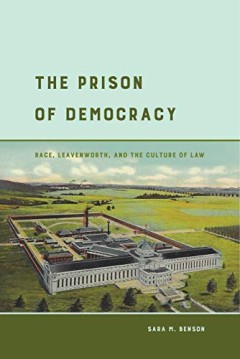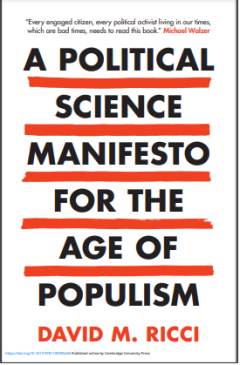Filter by

The Prison of Democracy : Race, Leavenworth, and the Culture of Law
Built in the 1890s at the center of the nation, Leavenworth Federal Penitentiary was designed specifically to be a replica of the US Capitol Building. But why? The Prison of Democracy explains the political significance of a prison built to mimic one of America’s monuments to democracy. Locating Leavenworth in memory, history, and law, the prison geographically sits at the borders of Indian T…
- Edition
- -
- ISBN/ISSN
- 9780520969490
- Collation
- vii, 203 p.
- Series Title
- -
- Call Number
- 365.978138 PRI S

Rituals, runaways, and the Haitian Revolution : collective action in the Afri…
The Haitian Revolution was perhaps the most successful slave rebellion in modern history; it created the first and only free and independent Black nation in the Americas. This book tells the story of how enslaved Africans forcibly brought to colonial Haiti through the trans-Atlantic slave trade used their cultural and religious heritages, social networks, and labor and militaristic skills to su…
- Edition
- Edisi 2
- ISBN/ISSN
- 9781009256148
- Collation
- xiii, 355p.: ill.
- Series Title
- -
- Call Number
- 305.89607294 EDD r

Paternalism to partnership : the administration of Indian affairs, 1786-2021
Paternalism to Partnership examines the administration of Indian affairs from 1786, when the first federal administrator was appointed, through 2021. David H. DeJong examines each administrator through a biographical sketch and excerpts of policy statements defining the administrator’s political philosophy, drawn from official reports or the administrator’s own writings. The Indian Offic…
- Edition
- -
- ISBN/ISSN
- 9781496230584
- Collation
- xvii, 476 p.
- Series Title
- -
- Call Number
- 323.1197 DEJ p

A Political Science Manifesto for the Age of Populism
Populism and authoritarian-populist parties have surged in the 21st century. In the United States, Donald Trump appears to have become the poster president for the surge. David M. Ricci, in this call to arms, thinks Trump is symptomatic of the changes that have caused a crisis among Americans - namely, mass economic and creative destruction: automation, outsourcing, deindustrialization, globali…
- Edition
- -
- ISBN/ISSN
- 9781108785440
- Collation
- x, 258p: ill,
- Series Title
- -
- Call Number
- 320.473 DAV

The wealthy, the brilliant, the few : elite education in contemporary America…
How do the US make sense of their own elite educational system, given that it seems to be at odds with core American values, such as equality of opportunity or upward mobility? Sophie Spieler explores scholarly and journalistic investigations, self-representational texts, and fictional narratives revolving around the Ivy League and its peers in order to understand elite education and its peculi…
- Edition
- -
- ISBN/ISSN
- 9783839457290
- Collation
- 273 p.
- Series Title
- Volume 33 in the series American Culture Studies
- Call Number
- 370.73 SPI t
 Computer Science, Information & General Works
Computer Science, Information & General Works  Philosophy & Psychology
Philosophy & Psychology  Religion
Religion  Social Sciences
Social Sciences  Language
Language  Pure Science
Pure Science  Applied Sciences
Applied Sciences  Art & Recreation
Art & Recreation  Literature
Literature  History & Geography
History & Geography